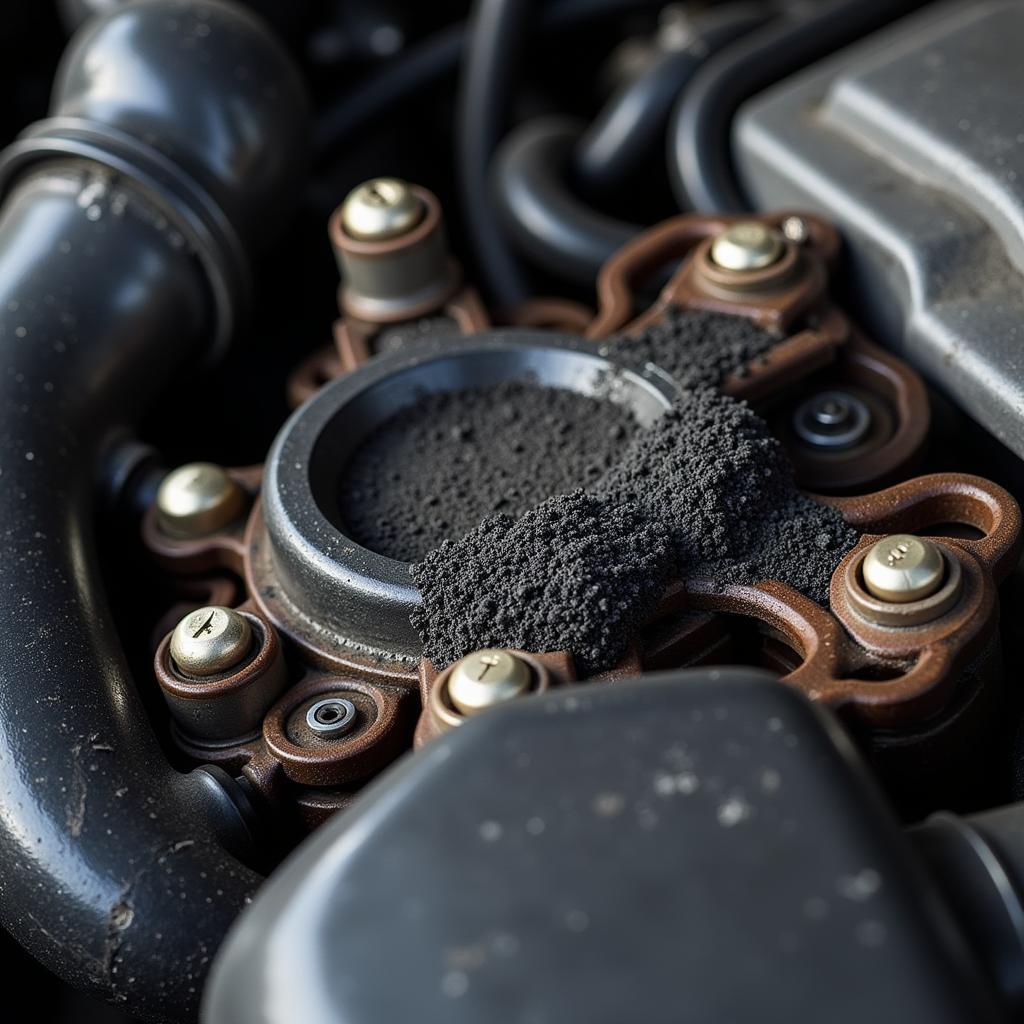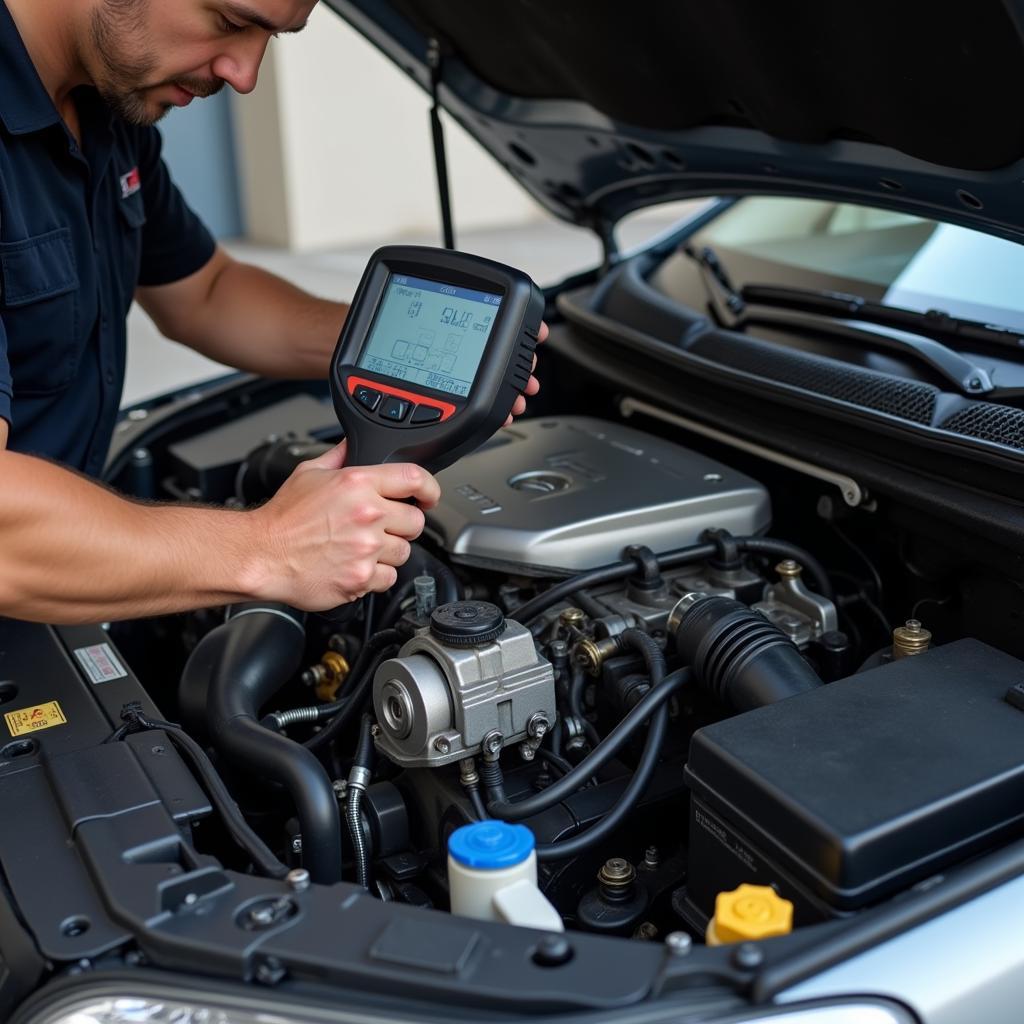Cheap gas can be tempting, especially with fluctuating fuel prices. But is it actually bad for your car? This is a common question among car owners, and understanding the potential impact of using cheaper gasoline on your vehicle’s performance and longevity is crucial. Let’s dive deep into the topic of cheap gas and its effects on your car’s health.
Choosing the right gasoline for your car can significantly impact its performance and lifespan. While opting for used cars for cheap near me might seem like a smart financial move, neglecting the quality of fuel you use can lead to costly repairs down the road.
Understanding Gasoline Grades and Quality
Different gasoline grades are available, each with varying octane ratings. The octane rating indicates the fuel’s resistance to knocking or pinging, which is a premature detonation in the engine. Higher octane fuels are generally formulated for high-performance engines that require a higher resistance to knocking. Cheap gas often has a lower octane rating, which can lead to problems in certain vehicles.
Lower-priced gasoline doesn’t always translate to lower quality, but it often can. Cheap gas may contain fewer detergents and additives that are designed to clean the engine and fuel system. Over time, this can lead to the buildup of deposits, potentially affecting engine performance and fuel efficiency. It’s essential to understand the differences between gasoline grades and choose the appropriate fuel for your vehicle as recommended in your owner’s manual.
Potential Problems with Cheap Gas
Engine Performance Issues
Using cheap gas, especially in a car designed for higher octane fuel, can lead to engine knocking. This knocking can reduce engine power, decrease fuel efficiency, and, in severe cases, damage engine components. While some modern cars have knock sensors that can adjust the timing to compensate for lower octane fuel, this adjustment can still impact performance. If you notice a decrease in performance or unusual engine noises after switching to cheap gas, it’s a good indication that your car isn’t happy with the change.
Fuel System Problems
Cheap gas may contain fewer detergents, leading to the buildup of deposits in the fuel injectors, intake valves, and combustion chambers. These deposits can restrict fuel flow, reduce engine efficiency, and even cause misfires. In the long run, this can lead to more frequent maintenance and potentially costly repairs. Understanding automobile car parts and their functions can help you appreciate the potential impact of cheap gas on your car.
 Cheap Gas Engine Damage
Cheap Gas Engine Damage
Increased Emissions
The buildup of deposits from using cheap gas can also affect your car’s emissions. It can lead to increased emissions of pollutants, which can be harmful to the environment and may cause your car to fail emissions tests. Maintaining a clean fuel system by using quality gasoline can help reduce emissions and ensure your car complies with environmental regulations.
Is Premium Gas Always Better?
While cheap gas can be problematic, it’s also important to understand that using premium gas in a car that doesn’t require it won’t provide any noticeable benefits. If your car is designed for regular octane fuel, using premium gas is essentially a waste of money. The best practice is to follow your car manufacturer’s recommendations for the appropriate octane rating. Choosing the best fuel for your car can also improve its overall performance, similar to how selecting the best commuter car can enhance your daily commute.
When to Consider Premium Gas
There are certain situations where using premium gas might be beneficial, even if your car doesn’t strictly require it. For instance, if you notice engine knocking, especially during hot weather or when carrying heavy loads, using a higher octane fuel can alleviate this problem. Additionally, some older cars may benefit from the added detergents and additives found in premium gas, particularly if they haven’t been regularly maintained.
How to Choose the Right Gas for Your Car
The most reliable way to determine the right gas for your car is to consult your owner’s manual. The manufacturer’s recommendation for octane rating is based on the engine’s design and performance requirements. You should also consider your driving habits and the typical conditions you drive in. If you frequently experience engine knocking or drive in extreme temperatures, using a higher octane fuel might be worthwhile. Knowing why your car might be experiencing issues, like why does my car take so long to turn on, can help you make informed decisions about fuel choices and other maintenance practices.
Conclusion
While cheap gas might seem appealing to your wallet, it’s essential to consider the potential long-term consequences for your car. Using the wrong fuel can lead to engine performance issues, fuel system problems, and increased emissions. By following your manufacturer’s recommendations and understanding the different gasoline grades, you can make informed decisions about choosing the right fuel for your car and maintain its optimal performance and longevity. Using cheap gas can be a gamble, so prioritize your car’s health and opt for the appropriate fuel.
 Mechanic Inspecting Car Engine
Mechanic Inspecting Car Engine
FAQ
- What is the difference between regular and premium gas?
- Can I switch between different octane ratings?
- How can I tell if my car is experiencing engine knocking?
- What are the signs of a dirty fuel system?
- How often should I have my fuel system cleaned?
- Will using premium gas improve my car’s performance if it doesn’t require it?
- Can cheap gas damage my catalytic converter?
Here are some other questions and articles that might interest you:
- How can I improve my car’s fuel efficiency?
- What are the common signs of fuel injector problems?
- Understanding the different types of fuel additives.
- Find saints row the third all car cheats
If you need support, contact us via WhatsApp: +1(641)206-8880, Email: [email protected] Or visit us at: 276 Reock St, City of Orange, NJ 07050, United States. We have a 24/7 customer service team.


